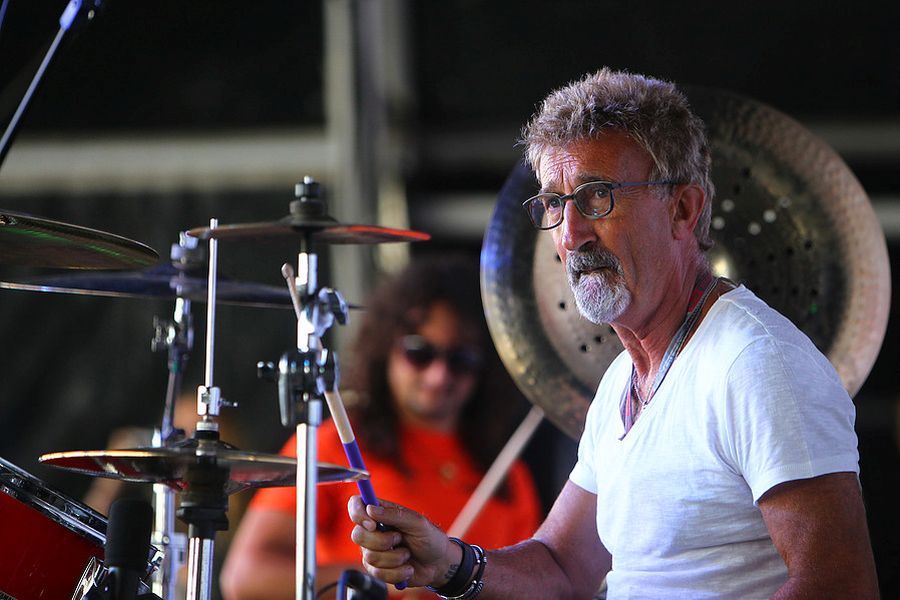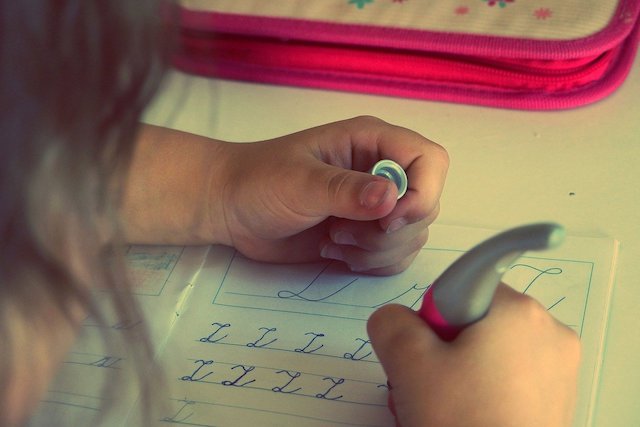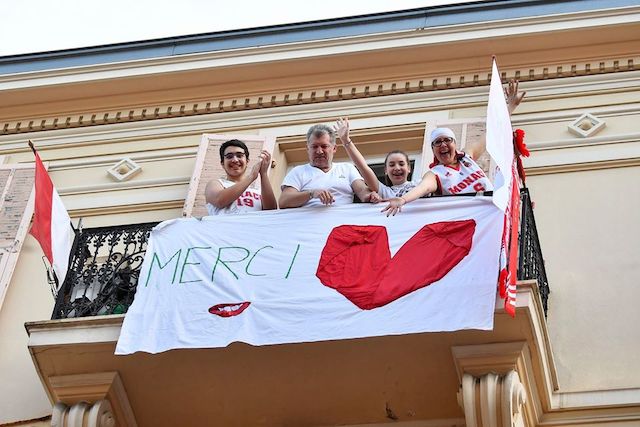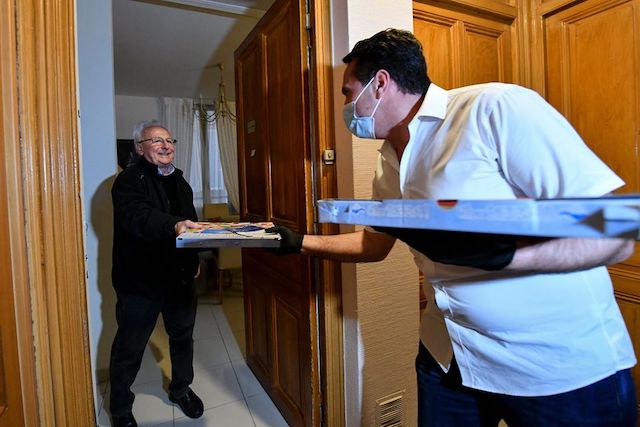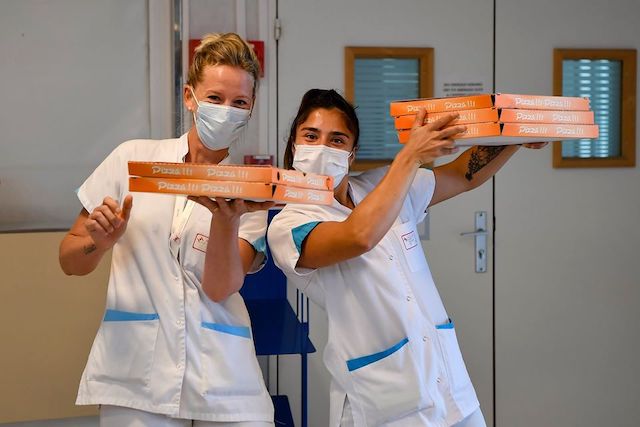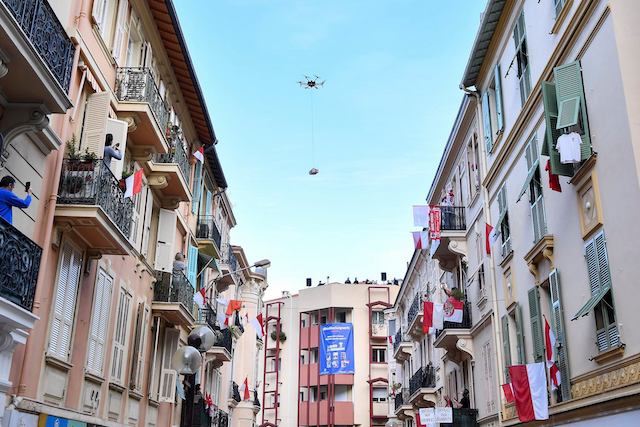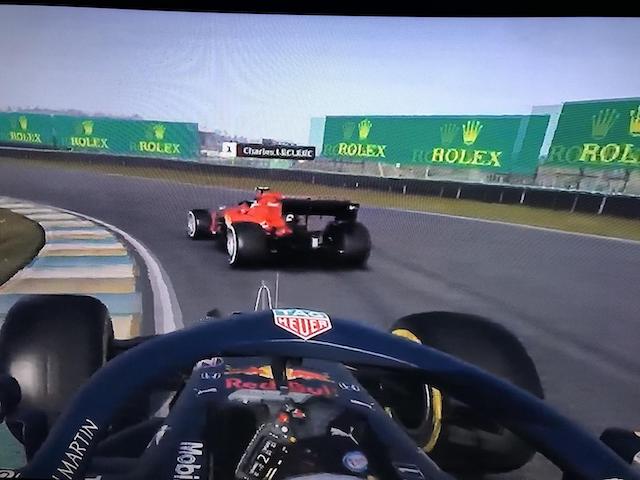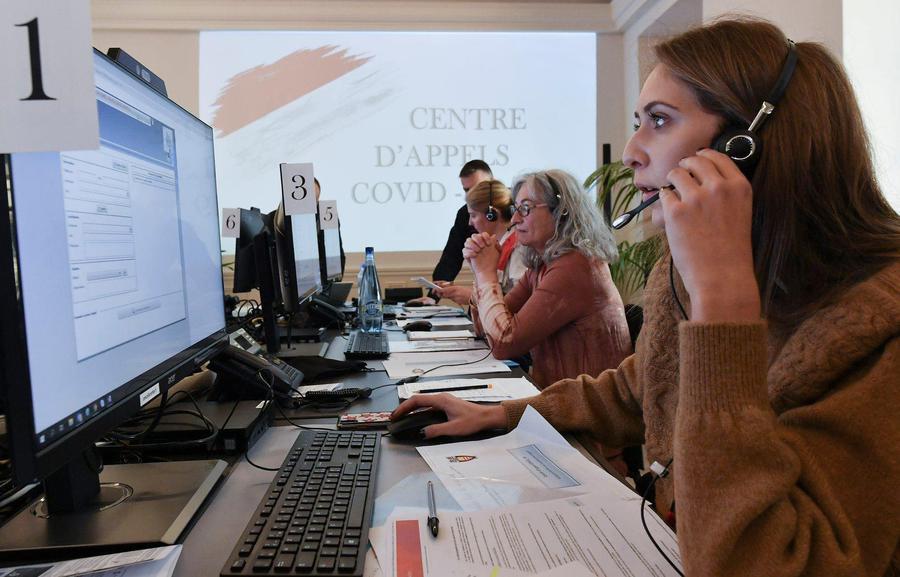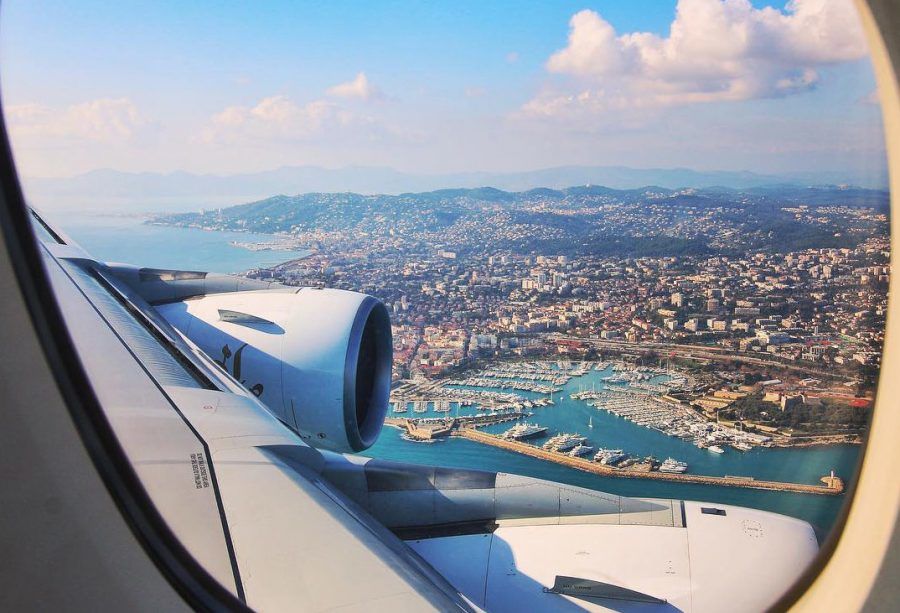In a new regular feature for Monaco Life, Simon Pavitt, pioneer in helping remarkable individuals with their ‘Capstones’, talks to Principality residents about how they are finding meaning and fulfilment beyond their day to day business. Simon’s focus is on passion projects and the ‘non-financial’ motivations to getting people going.
Simon spoke with Eddie Jordan OBE, (commonly and affectionately known as EJ), the Irish former F1 team owner, entrepreneur, TV personality and philanthropist.
So EJ, what is your connection to Monaco?
I moved to Monaco in 2009. A lot of F1 people move here, especially current and ex-drivers. Partly because they can go about their usual day to day activities without fuss. Then there is the motor racing heritage whereby people here understand and embrace Formula One. It is also well connected to get across Europe to races in Spain, Belgium, Italy, and the Netherlands. There have been quite a few private jet ‘lift sharing’ with a bunch of drivers to and from Monaco before and after race weekends.
I do love Monaco, it feels safe and a bit like a village. I have always gravitated to smaller places – the likes of Jersey where I spent summers karting to the Wentworth Estate. Similar to the F1 paddock, you develop better relationships in smaller places, and there’s more chance for me to use my Irish blarney within a community.
Let’s start with what we call the cornerstone phase of a career. Can you tell us more about your early years growing up and some of the defining moments that set you on your path?
I grew up in Southern Ireland. I went to a strict school. I was destined to either follow the family footsteps and become a banker, accountant, dentist or priest! But I also had a passion for karting. I started late, though, compared to the professional drivers of today. Lewis Hamilton was taking karting seriously aged eight! After only one serious year racing, at age 23, I won the 1971 Irish Kart Championship. I started too late really but got the racing bug.
I have taken the classic path working up through the ranks of motorsport, from karting to Formula Ford to Formula 3, Formula Atlantic and Formula 2. I even had the briefest of experiences driving in Formula 1: one test at Brands Hatch for McLaren in 1980. Moving through the different series put real racing into my blood. Like rising to the top from the bottom up. I look back and still find racing the most enjoyable in the feeder series versus the glitz and glamour of Formula One.
Moving onto your keystone phase, we consider this the time you make your mark, the middle age where you create and achieve success.
I would say things really started to gain momentum in 1979 when I formed my first team Eddie Jordan Racing. Rather than the driver, I was the team owner. During the 80s I found and employed some amazing drivers and won some prestigious championships such as British Formula Three. I had a knack of being able to spot and nurture talent. I have enjoyed punching above my weight and taking calculated risks. I was ‘all in’ on many occasions during these times. I am probably well known for having some of the world’s best drivers come through the ranks with me: Ayrton Senna, Michael Schumacher, Heinz-Harald Frentzen, Nigel Mansell, Giancarlo Fisichella, Damon Hill, Jean Alesi, Rubens Barichello, Johnny Herbert, Eddie Irvine and Martin Brundle. The list goes on. I am very proud of that stable. I think I could spot a racer with talent and quickly sus out how to adapt to him in order to make him a fast driver.
In 1991 I took one of the biggest risks in my life by starting Jordan Grand Prix to race in Formula One. I had my Wingman Gary Anderson as chief designer. He was a genius. We were the underdogs, the scrappy start up. We were able to punch above our weight by being agile and making whatever funds we had from sponsorship work harder than any other team. I risked it all. It was still a people and relationships business then, as opposed to today which is very corporate.
I worked night and day to schmooze sponsors and high net worth individuals. We came across as the fun ones, less serious than other teams. But behind our facade was a steely attitude and a strong work ethic. There were some real highs over the 15 or so years in charge of the team, especially the four race wins and 19 podiums. We achieved a ‘one-two’ at the 1998 Belgian Grand Prix. That was a special moment for the whole team as well as F1 followers that loved the independent teams beating the old guard. Giving Michael Schumacher his first drive in F1 is a really proud moment. Looking back to the earlier racing – giving Ayrton Senna his first drive in a Formula 3 car in 1983 – was quite a moment. Naturally, there were also some quite public lows. It was a real roller coaster to say the least. I sold the team in 2005 to Midland and a Canadian businessman Alex Schnaider. I like to think my timing was good. It often was. Looking back, that was the end of the keystone phase of my career and I don’t regret a day of it. It was quite a ride.
Onto our focus, the Capstone phase. We like to look at what someone does after they’ve made their money and fulfilled many ambitions already in life. What did you do next?
I had made a few quid and felt my family were financially secure. I have four kids, now all grown up, and an amazingly patient wife. Firstly, I didn’t want to walk away fully from motorsport. Racing becomes a way of life. But I don’t miss the stress and relentless pressure of F1 I tell you! So, I continued as a TV pundit and commentator to keep myself involved. I also worked and toured with BBC’s Top Gear and Top Gear Live. I remain a part of that and give my outspoken opinion on UK’s Channel 4. I still like to break the odd news story in F1… (he says with a glint in his eye).
Like the race teams I built, I am independently minded. I am unemployable really. I quickly threw myself into other activities and still love jumping from one thing to the next.
Where do I start on my passion projects?
Well, I have certainly switched gears. A lot of my focus shifted to my family and helping others. My daughter Zoe has her own label, a thriving fashion business. My other daughter Miki worked in sports events and her husband Tom has an events infrastructure business called Caboose & Co. I’m very proud to see the company has been helping in the UK with the coronavirus crisis, installing a temporary village to support NHS staff working at the Royal Berkshire Hospital on the grounds of a nearby school.
I’ve spent a lot of time following my eldest son’s sports career: from his 50 caps for Ireland in Lacrosse and his amateur boxing career to becoming a Varsity snowboarding champion. Lastly, I work closely with my youngest son Kyle on an online charity fundraising platform called GoodGood Giving. The idea is to offer the chance to win one of a kind experiences in return for a donation. Most charity auctions are not accessible to the general public so we hope by widening this out we can raise large sums of money for charity partners. We hope to raise £5 million over the next five years. It complements a lot of charity work I have been a part of over the years. We have the Jordan Family Foundation, I am a patron for both CLIC Sargent and Amber Foundation, and I do like to get involved in charity events in Monaco to help the Princess Charlene of Monaco Foundation. My latest project is for a charity in Cape Town. More can always be done. I particularly like ways to enable people to move on to positive independent futures.
I think you never fail to surprise people. Many didn’t know how good a drummer you are…
Part of your Capstone phase is being able to do things you are passionate about. I have my band Eddie & the Robbers. We are alright, you know! Drumming is a great outlet for me and my restlessness. We’ve enjoyed performing big gigs and get invited to do a lot of F1 race weekends to entertain the crowds (including performing in front of over 50,000 at Silverstone). Music is very powerful for me alongside cycling and sailing – these are my must haves to keep me going. I can’t cope without the sea so it’s good to have Monaco Harbour and the Yacht Club on the doorstep.
I bought Debrett’s with friend Darryl Eales a few years ago which people didn’t expect. It is a 250-year-old start up. It has chronicled aristocracy and the greatest contributors to British life through many, many generations. I was interested in how it was reinventing itself as an engine for social mobility. The company’s own charity, the Debrett’s Foundation, selects bright underprivileged youngsters to develop their skills in self-presentation. I have never really followed the rules of a class system, I have always broken ceilings and tried to avoid the feeling of the imposter syndrome. Despite one’s background, its attitude that counts for me and that can be learned.
I am starting to see a theme EJ, which is mobility. From loving racing – the ultimate mobility challenge, to your personality – always moving onto the next thing and never staying still, to social mobility…
Yes, you are right. I refocused from trying to make two drivers the most mobile people on the planet to looking at social mobility for many more. I am still just trying to apply my way of going about things and getting things done.
Why do people undertake Capstones?
I’ve always enjoyed the craic with people so this phase of life is no different. I like to challenge the status quo, show people what’s possible, keep the wheels in motion. Having turned a corner into my 70s it all keeps me young and energised. Over the years I have connected a lot of friends and acquaintances that want to do fun projects together. Monaco is great for that, connecting good people wanting to do passion projects together over a pint of Guinness. So really my Capstone phase has been about helping others around me with their Capstones, it makes every day different.
Any last words of advice for those living in Monaco and readers of Monaco Life about starting a Capstone project?
Do it. Don’t wait. I would say my best decisions came from the heart, backed up by fast action and then the guts to stick to bold decisions. I’ve always been a believer in regretting the things you did do rather than the things you didn’t end up doing. I’ve always been a hard worker, keeping busy and leading from the front. I think that work ethic has rubbed off on my kids and one day hopefully my grandchildren, as well as maybe inspired a few race fans to also follow their passions with guts and determination.
www.wingmanthinks.com
Interview: Eddie Jordan
